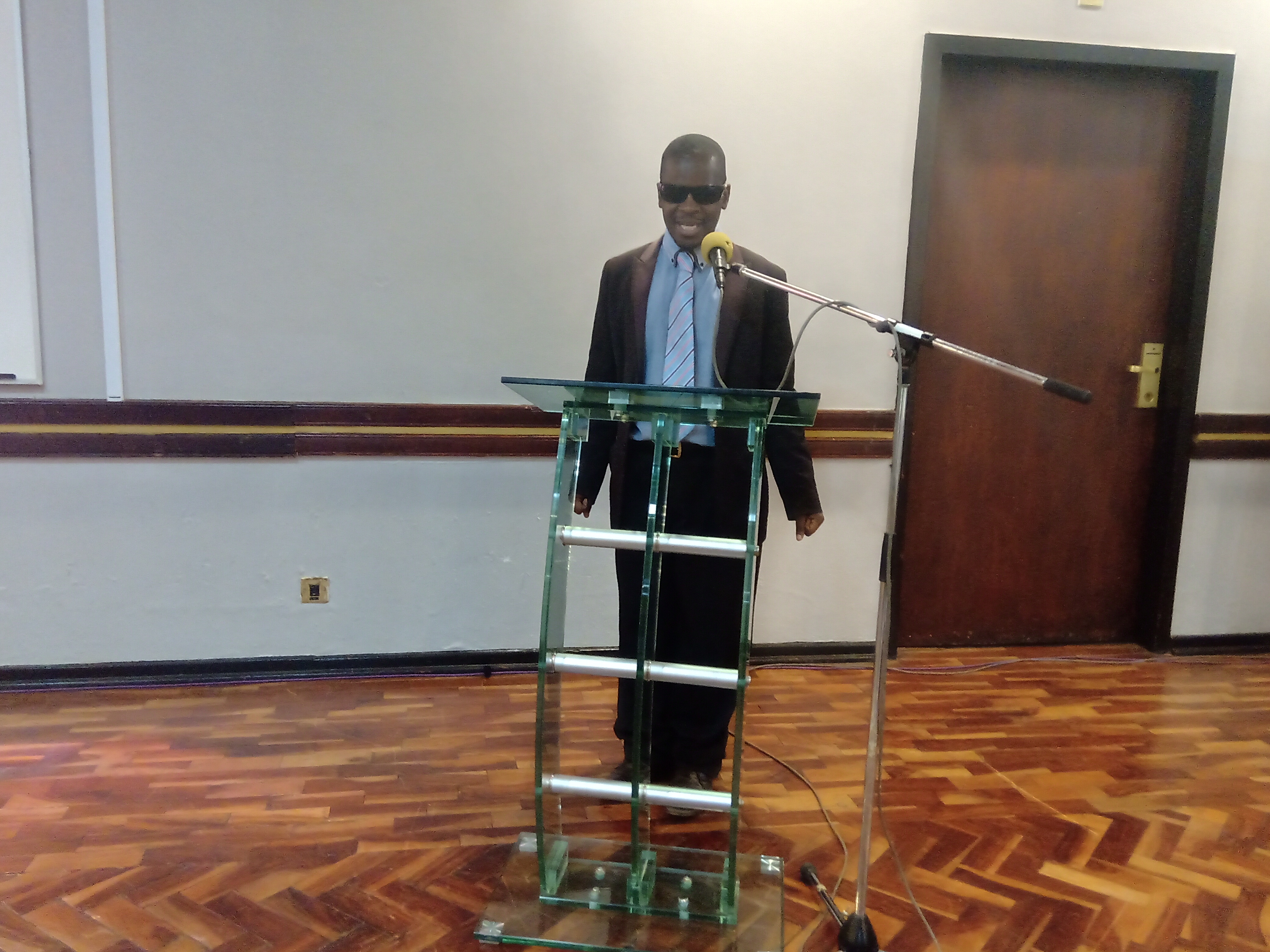By Byron Mutingwende
The law and policy framework is very important in improving the lives of people with disabilities (PWDs). Speaking during a breakfast meeting on disability awareness raising, Mr. Abraham Mateta, a disability advocate, said the main challenge that PWDs organisations have been facing was to encourage conversations that excluded policymakers.
The workshop was organised by Leonard Cheshire Disability Zimbabwe with the generous support of the European Union.
“It is therefore commendable that a meeting with Parliamentarians was organised in which awareness was raised on disability issues and policy gaps identified. There is need to urgently come up with a comprehensive national disability policy to guide both the public and private stakeholders on how to deal with disability,” Mr. Mateta said.
A baseline survey titled “Youth Actions on the Implementation and Monitoring of Disability Rights in Zimbabwe and Zambia” revealed that despite the legislative shortfalls and restrictive provisions, Zimbabwe has policy frameworks in existence to address issues of disability.
The Constitution of Zimbabwe provides for disability inclusion, in addition to critical sectors such as health and education, which also provide for disability inclusion.
There are still gaps though, in the implementation of the policies. There is also a lack of clarity on some of the important pieces of legislation, for example, Zimbabwe’s Disabled Persons Act is ambiguous on governments obligations on disability which makes it difficult to litigate against the Government for failing to meet its obligations.
Mr. Mateta said development on disability issues must cascade to grass-root levels.
“Thus awareness raising should be done at community level. There is need to improve the policy and legislative environment governing the education of PWDs. The Education Amendment Bill in its current form falls far short of meeting the standards set in the UNCRPD,” Mr. Mateta said.
The Education Bill fails to address inclusive education in that it does not even mention it.
“While it talks of disability, it does not talk of inclusive education. There is need to increase access to justice for PWDs. The Criminal law still largely views persons with psychosocial impairments as not being competent and compellable witnesses. As a result, a lot of rape cases where PWDs have been abused have actually failed to take off in our Courts due to this weakness,” said Advocate Mateta.
Hon. Joshua Muirire, the Member of the National Assembly for Musikavanhu Constituency said PWDs should live independent lives and enjoy all rights and access to facilities for meaningful lives.
“Legislators should be supported to reach their constituencies with the message that there is need to remove all policies and laws that hinder PWDs from enjoying their rights and obligations under the Constitution. Zimbabwe ratified the UNCRPD in 2013.
“Awareness of the existence of UNCRPD varies among duty bearers in Government. Some departments are well aware of its existence, its provisions and how it influences their local disability policy and legislative framework while others have a basic appreciation of the Convention’s existence,” Hon. Murire said.
On access to health, there are various barriers, said Mr. Godfrey Sibanda, the Chairman of LCDZ. He said chief among these problems is what has been described as innocent ignorance on the part of healthcare providers on disability.
Mr. Mateta weighed in and said there is need to ensure that basic disability training is mainstreamed in the curricular for health practitioners.
“Due to the way information is packaged, PWDs often get their right to privacy and confidentiality breached while accessing health services. For instance, a person who is hearing impaired and in need of sign language will be forced to come with an interpreter because healthcare practitioners can not use sign language.
“This means that instead of the information being between such a person and the health practitioner, there is now a third person who is not trained to handle confidential information,” Mr. Mateta added.
